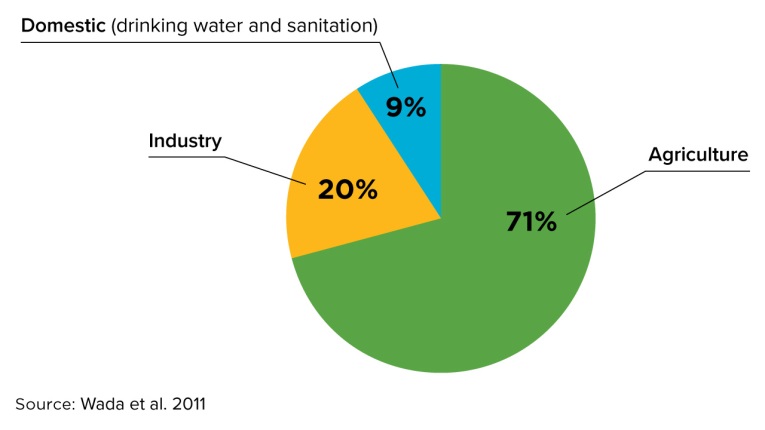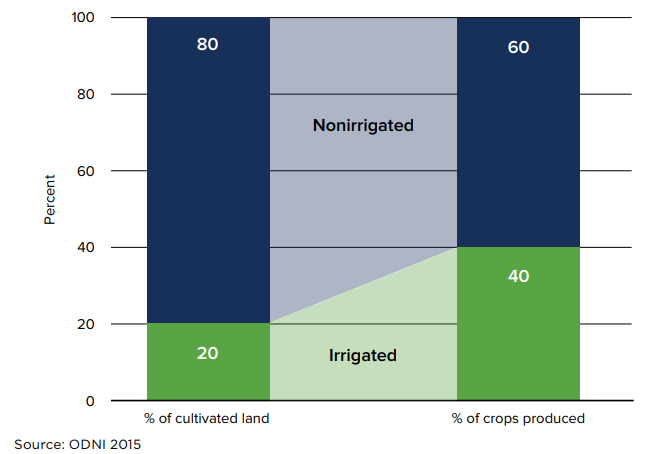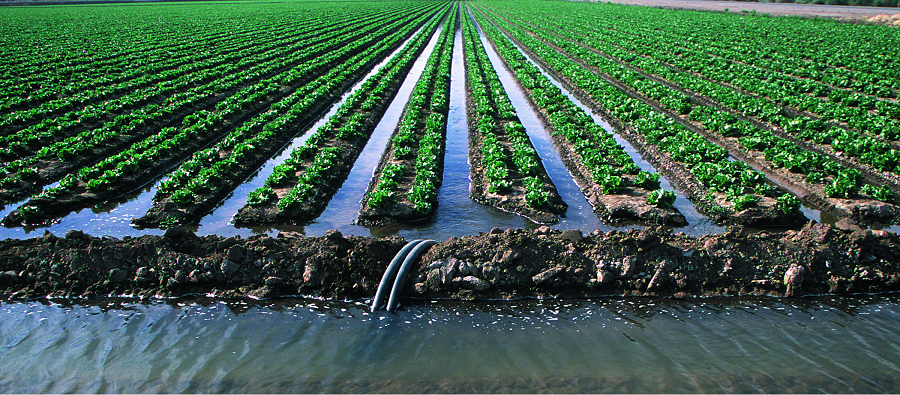“How will we grow an adequate quantity—and quality—of food to feed and nourish a rapidly growing, urbanizing world in the face of increasing water insecurity?” This was the primary problem considered by the Chicago Council on Global Affairs at the 2019 Global Food Security Symposium in Washington DC last week. This year’s symposium, ‘From Scarcity to Security: Managing Water for a Nutritious Food Future’ saw the release of a 149-page report by the Council and focus on three central topics: the nature of the threat to water security; strategies to enhance water, food, and nutrition security; and ensuring that water solutions reach smallholder farmers.
Alesha Black, Managing Director of the Council’s Global Food and Agriculture Program, opened the full day of proceedings by quoting Franklin D. Roosevelt.
“Men and nature must work hand in hand. The throwing out of balance the resources of nature throws out of balance also the lives of men.”
With the tone of the day set, discussion of turned to the featured report’s findings and recommendations. As outlined in Farming First’s coverage of the report, progress on water security requires work both by large organisations and innovation on the part of individual consumers and producers.
“Water stress is forcing us to consider what we must do to balance the needs of mankind when it comes to this shared resource,” Ms Black emphasised. In that vein, understanding what was driving water stress so as to mitigate it was a major preoccupation of the day’s speakers.
“In areas where rain is extremely important for growing food crops and for food security, the timing of water is shifting in many places,” noted Betsy Otto, the Global Director of the World Resources Institute’s Water Program. However, she continued “in many places the chief driver of increased water stress is actually demand, not supply. We’re putting much more strain on our available water resources. We’re not using them efficiently.”

Global Water Consumption by Sector. Credit: Chicago Council on Global Affairs
Innovation was highlighted as a key means to improve efficiency. Gilbert F. Houngbo, the President, International Fund for Agricultural Development, stressed that the greatest expectation for the private sector in particular was for it to innovate and develop new technologies that would improve water management.
Pearl Gaone Ranna, Obama Foundation Scholar at the Harris School of Public Policy, suggested a crucial part of improving water efficiency was enabling and encouraging smallholders to play their role. As smallholders are set to meet the food needs of much of the developing world, technology which can be simplified and distributed for their use is crucial to global water conservation efforts. One promising Israeli example, Ranna suggested, were economical automated systems that activated irrigation systems based on readings of soil moisture; these increased yields by 5 per cent and reduced water consumption by 30 per cent.
“For me, it’s about the small ideas that add up to make a huge impact,” said Kevin Fessenden, a Senior Director of Global Engineering at Abbott Nutrition. Fostering cultures – from the top-down and bottom-up – that encourage initiatives like the recycling of used water and the capturing of rainwater allow for additive bonuses in both urban and rural environments.

Nonirrigated vs Irrigated Land Use and Crop Production. Credit: Chicago Council on Global Affairs
One such change would be changing from rain-fed agriculture to irrigated agriculture. This was noted by Khalid Bomba, CEO of the Ethiopian Agricultural Transformation Agency. “We actually need to produce more than once a year. Thankfully, the soil and the ecology allows us to do that – water is the limiting factor. We have to use the abundance of water that we have that comes in a very concentrated way, in a smarter and more efficient manner throughout the year,” he said.
The symposium also heard of solutions such as breeding more productive crops to make every unit of water go farther, and strengthening institutional governance of water resources. However, even after considering a multitude of solutions to make water use more efficient, there did remain concerning trends.
“The exportation of the western/American diet: it does not look great for Africa, it does not look great for Asia, or South-East Asia,” said Jessica Fanzo, Associate Professor of Ethics and Global Food and Agriculture at Johns Hopkins University. And this does not merely entail just concerns regarding health; the high level of meat consumption from the westernised diet many in the developing world are clamouring to experience is extremely water-intensive. Changing current western dietary intakes to be more sustainable and less meat-intensive would, on average, reduce water use by 30 per cent.
“Food security cannot just be about quantity. It has to be about quality,” said Roy Steiner, Manager Director of food at the Rockefeller Foundation. In this regard, water security plays into both concerns – promoting health and sustainable agriculture may two sides of the same coin.
Featured photo credits: Jeff Vanuga, USDA Natural Resources Conservation Service



